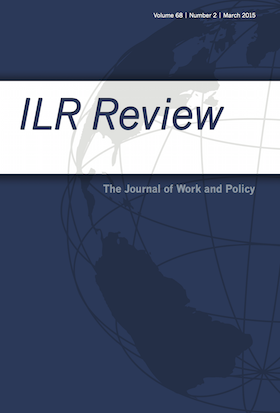
What Does Codetermination Do?
The authors provide a comprehensive overview of codetermination, that is, worker representation in firms’ governance and management. The available micro evidence points to zero or small positive effects of codetermination on worker and firm outcomes and leaves room for moderate positive effects on productivity, wages, and job stability. The authors also present new country-level, general-equilibrium event studies of codetermination reforms between the 1960s and 2010s, finding no effects on aggregate economic outcomes or the quality of industrial relations. They offer three explanations for the institution’s limited impact. First, existing codetermination laws convey little authority to workers. Second, countries with codetermination laws have high baseline levels of informal worker voice. Third, codetermination laws may interact with other labor market institutions, such as union representation and collective bargaining. The article closes with a discussion of the implications for recent codetermination proposals in the United States.





